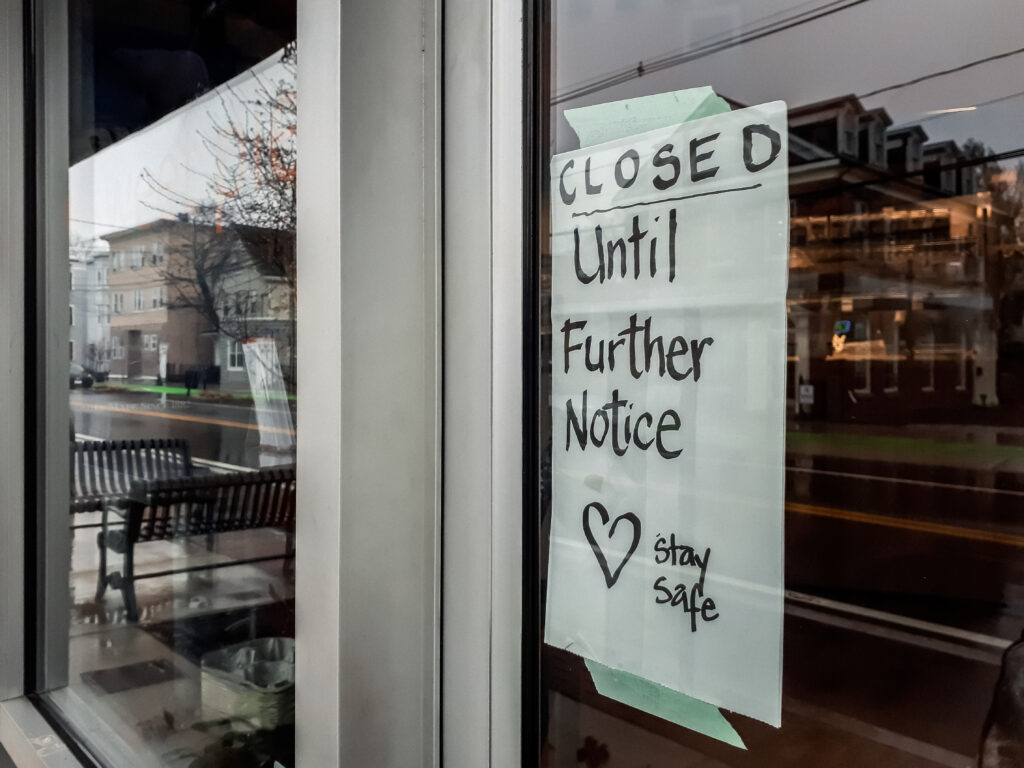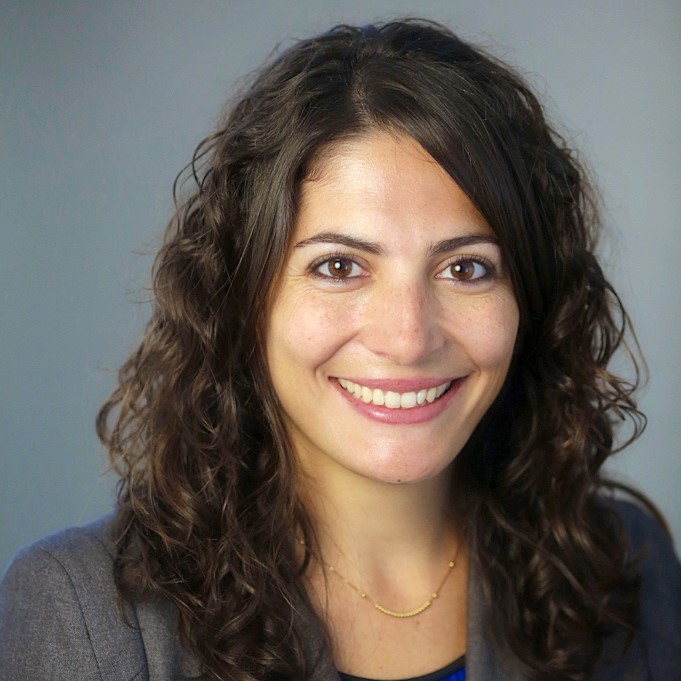
Through the support of the Peter G. Peterson Foundation, the Schaeffer Center is launching the pandemic policy research fund to support research and engage in policy discussions that will impact our understanding of the impact of the COVID-19 pandemic and prepare us for future pandemics.
Overview | Important Dates | Contact | Funding Priorities | Application | Awardees
Researching the Impact of the Policy Response to the COVID-19 Pandemic

The COVID-19 coronavirus pandemic set off an unprecedented chain of policy responses aimed at mitigating the health and economic impacts of the spread of the infectious virus. Since March 2020, policymakers and public health officials at the local, state and federal levels have grappled with changing and uncertain information, competing priorities and complicated, dynamic scenarios.
The Schaeffer Center is launching the Peter G. Peterson Foundation Pandemic Response Policy Research Fund to support research that advances our understanding of the short and long-run impact of public policies implemented in response to the pandemic. Researchers from across the University of Southern California will be eligible to apply.

“The COVID-19 pandemic has reinvigorated our commitment to conduct timely, innovative and objective research. USC faculty have been at the forefront of producing new evidence to inform public policy and discourse on the pandemic. I am thankful to the Peter G. Peterson Foundation for providing this opportunity to broaden and elevate this important work”
Neeraj Sood, PhD
Director, COVID Initiative, USC Schaeffer Center
Vice Dean for Research, USC Price School for Public Policy
Application Information
Important Dates
Update: The Request for Proposals for 2022 is currently closed. Please check back later in 2023.
2022 Request for Proposal Dates:
Opened: May 1, 2022.
Closed: August 30, 2022
Awarded funds will be made available October 1, 2022 for Normal Research Grants. Rapid Research Grants will be awarded and funded on a rolling basis.
Contact Information
Please address questions about the funding opportunity to the project director, Professor Neeraj Sood at nsood@usc.edu. Please address questions about budgets to Cristina Wilson at cwilson@usc.edu.
Funding Priorities
The Peter G. Peterson Foundation Pandemic Policy Research Fund at the University of Southern California (USC) Schaeffer Center for Health Policy & Economics is pleased to announce a call for proposals. We ask for proposals to fund research on the following topics:
- Research that advances our understanding of the short and long-run impact of public policies to mitigate the health and economic effects of the pandemic on health and economic outcomes at both the individual and economy-wide level.
- Research that advances our understanding of the impact of the pandemic and associated policies on broader economic and social trends such as the adoption of new technologies, changes in where we work, changes in health care and health-related behaviors, changes in savings/consumption decisions and changes in fiscal and monetary policies at the local, state and federal levels.
- Research that improves preparedness for future pandemics.
We welcome research proposals that focus on primary or secondary data analysis as well as research that synthesizes and draws lessons from existing research for policymakers and the broader public.
Who is eligible to apply?
All USC faculty, post-docs and PhD students are eligible to apply for this opportunity.
What is the size of the funding opportunity?
The total budget for the fund is $1 million over two years.
Estimated number of awards?
4-5 Normal Research Grants (NRG) and 4-5 Rapid Research Grants (RRGs).
When are proposals due?
Proposals for NRGs are due no later than August 30, 2022, at 5:00 p.m. Pacific Time. Proposals for RRGs will be reviewed on a rolling basis and proposals are encouraged starting May 1, 2022.
Application Requirements
Applicants are required to submit a technical proposal, budget, budget justification and biographical sketches.
Technical Proposal Specifications:
Technical proposals for Normal Research Grants (NRGs) and Rapid Research Grants (RRGs) should not exceed 5 pages (excluding references). Each technical proposal should use 12-point font, Times New Roman or Arial, and 1.5 line spacing. The technical proposal should contain the following sections:
- Cover sheet: Project title, contact information of Principal Investigator and project abstract, which should not exceed 200 words.
- Specific aims: Provide key research objectives.
- Significance: Explain how the research will advance knowledge as well as the broader impacts on society and on public policy.
- Approach: The approach or methods for conducting the research.
- Project timeline: Proposed project start date, significant intermediate milestones, and duration.
- References: References should be in APA format. This section does not count towards the page limit for a technical proposal.
Budget and Budget Justification Specifications:
The budget and budget justification should contain separate line items for personnel costs and materials. Please provide a justification for each line item. The indirect cost rate is 15%. A template is provided below.
Budgets for NRGs should not exceed $150,000 and budgets for RRGs should not exceed $50,000. You can view the budget template below.
Budget Notes:
• Proposed period of performance cannot exceed 14 months between 4/1/22 – 4/30/24.
• RPG cannot exceed $50,000 in direct costs • NRG cannot exceed $150,000 in direct costs.
• This is a project funded by the Peterson’s Foundation (non-federally funded).
• 15% is the maximum allowable indirect costs in accordance with the Foundation’s guidelines.
Biographical Sketch Specifications:
Biographical sketches can be provided in either NIH or NSF format.
How to Apply
A link to the application is below. Please address questions about the funding opportunity to the project director, Professor Neeraj Sood at nsood@usc.edu. Please address questions about budgets to Cristina Wilson at cwilson@usc.edu.
2022/2023 Awardees
María Prados, PhD — USC Dornsife Center for Economic & Social Research

María Prados is an economist at the Center for Economic and Social Research at the University of Southern California. She received her Ph.D. in Economics from Columbia University, was a Postdoctoral Research Scholar at the Schaeffer Center for Health Policy and Economics and a RCMAR Scholar for the Minority Aging Health Economics Research Center at USC. She is a member of the USC Center for the Changing Family and a lecturer at the USC Economics Department. Dr. Prados specializes in quantitative and applied economics, and her research interests have to do with health, gender, labor economics, and household decisions. Recent research includes the gendered effects of the pandemic on labor market outcomes and mental health of working parents, environmental influences on teenage obesity, the value of treatment for Alzheimer’s Disease, and the long-term effects of high-quality early childhood education. Dr. Prados’ research has been funded by the Michigan Disability and Retirement Research Center, the NIH, the Roybal Center for Health Policy Simulation, and the Roybal Center for Health Decision Making and Financial Independence in Old Age.
Project Abstract | Pandemic-Related Child Care Closures and Developmental Outcomes of Young Children in Low-Income Families
Vulnerable families were hit hard during the COVID-19 pandemic along numerous dimensions, one of which were the challenges brought by the sudden closure of childcare centers around the country. Quality childcare and early education are crucial for children’s positive development, especially for vulnerable children.(Barnett, 1998; Burger, 2010; Conti et al., 2016; Dearing et al., 2009; Garcia et al., 2020; McCartney et al., 2007) Yet, minority and low-income families were overrepresented in areas with high rates of childcare closures.(Lee & Parolin, 2021) These closures and lack of timely reopening, disproportionately impacting low-income families, may have worsen the already unfavorable developmental outcomes for these children. Correctly estimating these effects is crucial to determine policies that address this issue.
This project will measure the impact of pandemic-related formal childcare closures and disruptions on young minority and low-income children’s developmental delays. For this, we will use a unique combination of administrative data on children’s developmental outcomes and families’ characteristics merged at the census tract level with contextual data from several sources. The administrative data comes from an early childhood home visitation program for low-income and vulnerable families The proposed research will highlight the underlying systemic inequalities in childcare and inform policymakers about the impact on these children.
Virat Agrawal, MS — USC Price School of Public Policy

Virat Agrawal is a Ph.D. student in the Public Policy and Management program at USC Price School of Public Policy. His research is focused on Behavioral Health Policy, Self-Monitoring Technology, Preventative Care, and COVID-19 policy. He is currently working with Dr. Neeraj Sood on COVID-19 shelter-in-place policies, mental health benefits and moral hazard effects of COVID-19 vaccines. Prior to joining the doctoral program, he worked in medical devices. He pursued a Bachelor’s in Biomedical Engineering from VIT University, India, and a Master’s in the same from USC Viterbi School of Engineering.
Project Abstract | Moral Hazard Effects of COVID-19 Vaccines
A long-standing economic question is how insurance against harm leads to potentially offsetting behavior change. Immunization is a type of insurance, as it protects individuals from the full cost of vaccine preventable diseases. Although the moral hazard effects of traditional insurance are well understood, there is little or no research on the moral hazard effects of vaccines, and in particular, the moral hazard effects of COVID-19 vaccines, one of the largest vaccination campaigns in history. The goal of this study is to empirically evaluate the moral hazard effects of COVID-19 vaccines by estimating how the receipt of COVID-19 vaccine influences behaviors that reduce the risk of contracting COVID-19, such as wearing masks, washing hands, and avoiding public places. The findings of the study could have important implications for public policy. For example, finding a substantial moral hazard effect of COVID-19 vaccines would argue for continued investments in risk mitigation interventions (e.g., social distancing) concurrent with a public vaccination campaign. Substantial moral hazard effects would also mean that clinical trials overestimate the “real-world” efficacy of vaccines. Participants in clinical trials likely exhibit less moral hazard, given that participants do not have evidence on the effectiveness of the vaccine and are also blinded as to whether they received the experimental vaccine or placebo. A key challenge in estimating the effects of receipt of vaccines on risk mitigation behavior is that the decision to get vaccinated is endogenous and likely related to underlying risk preferences, and therefore, I propose two estimation approach in this study using the Understanding America Study (UAS) survey data, a nationally representative cohort with about 9,500 adult participants. First, a regression discontinuity design (RDD) to exploit the discontinuity in vaccination rates at age 65, and compare vaccination rates and risk mitigation behavior between those above and below age 65. Second, I propose to use an instrumental variable approach that exploits the variation in eligibility for the COVID-19 vaccines by state, age, and time.
Jeremy Burke, PhD– USC Dornsife Center for Economic & Social Research

Jeremy Burke is a Senior Economist at the University of Southern California’s Center for Economic and Social Research. His main fields of research are behavioral economics and consumer financial decision-making. Currently, he is leading multiple field experiments leveraging behavioral principles to help consumers build savings (with soft-commitment mechanisms), reduce debt (with lottery linked incentives), and build credit (with various behavioral nudges). In other research he is examining how automatic enrollment influences cash-out decisions at job separation, the efficacy of socially annotated and modular disclosure in improving investment decisions, the prevalence and impacts of conflicts of interests in financial advice markets, and whether nudges received in advance can help indebted consumers leverage tax refunds to reduce their debt burdens. Jeremy received his Ph.D. in Economics from Duke University and previously was an Economist at RAND, Associate Director of RAND’s Center for Financial and Economic Decision Making, and a professor in the Pardee RAND Graduate School.
Project Abstract | The Impact of COVID-19 on Work-From-Home Arrangements, Job Satisfaction, Labor Force Attachment, and Employee Productivity
The COVID-19 pandemic created an abrupt and unprecedented social experiment in the nature of work, with a stark and persistent increase in work-from-home (WFH) arrangements. This project will document how the pandemic has changed the nature of working arrangements and employee expectations, and examine heterogeneity across race, ethnicity, and gender. Additionally, we will examine how the pandemic and WFH arrangements have influenced job satisfaction, labor force attachment, individual wellbeing, and employee productivity and turnover. Our findings will provide important insights to employers when determining WFH policies and assessing their consequences for workers’ productivity and wellbeing. They will also inform the debate about the extent to which policymakers should facilitate WFH arrangements and about how the changing relationship with work may influence unemployment and Social Security programs.
Anna Saavedra, PhD — USC Dornsife Center for Economic & Social Research

Dr. Anna Rosefsky Saavedra, a Research Scientist and USC Center for Applied Research in Education (CARE) Co-Director, is an applied education researcher with specialization in the areas of teaching and learning, and civics education, as well as leading large, complex studies. Dr. Saavedra co-leads the education module of the Understanding America Study (UAS), a nationally representative panel study of parents’ perceptions and reports on their children’s educational experiences during COVID-19. Between 2015-21, Dr. Saavedra was Principal Investigator (PI) of a five-district, mixed-methods, randomized controlled trial efficacy study of the implementation and impact of a project-based learning approach to teaching AP U.S. Government and AP Environmental Science. Based on study results, in summer 2021 the College Board started offering PBL professional learning for AP teachers. Prior to her research career, Dr. Saavedra managed educational programs and partnerships for an educational travel company and taught high school world history. Her education master’s and doctorate are from the Harvard Graduate School of Education.
Project Abstract | The Long-term Effects of COVID-19 and Mitigation Interventions on Children’s Well-Being: Implications for Education Policy and Future Economic Productivity
COVID-driven school closures affected more than 55 million U.S. K-12 children. In parallel, relative to pre-pandemic families have been experiencing greater adverse childhood experiences (e.g., death, job loss). With $122 billion in American Rescue Plan funding to be used by late 2024, US. school districts are implementing interventions intended to mitigate COVID’s negative effects on children’s well-being. Summer learning, after-school programs, tutoring, and mental health supports— among the most widely-used mitigation efforts—rely on family participation. Using the Understanding America Study, a nationally representative, longitudinal internet panel including ~1,600 households with K-12 children, and building on over 25 rounds of surveys asking about children administered since the beginning of the pandemic, we propose to 1) measure the availability of and participation in COVID-recovery interventions, examining variation across key axes of inequality and levels of in-person school attendance between 2020-22; and 2) investigate the associations between children’s participation in COVID-recovery interventions and their academic standing and mental health, exploring heterogeneity across those same axes. Results will provide insight into the long-term effects of COVID on children, inform local and state education agencies’ design, targeting, and implementation of interventions for children most in need of support, and contribute to economic productivity projections.
Bryan Tysinger, PhD — USC Schaeffer Center for Health Policy & Economics

Bryan Tysinger is a research assistant professor at the Sol Price School of Public Policy and director of health policy microsimulation at the USC Schaeffer Center. His research focuses on modeling health and economic outcomes over the life course, with emphasis on identifying policy solutions to improve initial trajectories for the young, course-correct for those at middle-age, and manage the aging process. He works extensively with dynamic microsimulation models, developing and refining the Future Elderly Model (FEM) and Future Adult Model (FAM) and expanding these models globally. As microsimulation director, he oversees the technical development team, assesses the feasibility of new projects, and establishes priorities for development to support the center’s goals. Tysinger earned a BS in applied mathematics, with distinction, from Harvey Mudd College. He holds a Master’s in policy analysis and a PhD in policy analysis from the Pardee RAND Graduate School. His dissertation is “A Life Course Dynamic Microsimulation with an Application to Valuing Diabetes Prevention.” He joined the Schaeffer Center as a quantitative analyst in 2011 and won the Sterling Franklin Outstanding Staff Award in 2017.
Project Abstract | Fiscal Consequences of Collateral Outcomes in the COVID-19 Pandemic
The one million excess deaths in the US during the current pandemic come from COVID-19 and a myriad of other types of collateral mortality, including increases in deaths from homicide, alcohol, drug overdoses, unintentional injuries, and some chronic illnesses. Mortality is not the entire story, as the pandemic era has also been characterized by changes in health risk factors that could increase long-term collateral morbidity, disability, and medical expenditures in the US population. These changes include increases in smoking, alcohol consumption, sedentary behavior, and weight gain and decreases in screening/preventive care and diet quality. In aggregate, these changes can have sizable effects on the fiscal future of the US, through impacts on Medicare, Medicaid, OASDI, and SSI. It is critical to understand and incorporate the consequences of morbidity and mortality from the pandemic in our fiscal planning.
Aim 1 – Quantify the years of life lost by age, sex, and race/ethnicity for the different types of excess deaths during the COVID-19 era.
Aim 2 – Estimate the potential long-term impact of risk factor changes to population health and disease burden.
Aim 3 – Translate the findings from Aims 1 and 2 into fiscal consequences for OASDI, Medicare, Medicaid, and SSI.
Marlon Boarnet, PhD — USC Price School of Public Policy

Dr. Marlon Boarnet, Professor of Public Policy and Chair of the Urban Planning & Spatial Analysis Department, is a renowned authority on urban economics, urban growth patterns, transportation, and regional science. He is an expert in transportation and land use, and has served on the National Research Council committee that authored “Driving and the Built Environment.”
Project Abstract | How Remote Work can Influence GHG Emissions and Housing Policy: A National Analysis of the Impact of Covid-19 on Remote Work, Commuting, Residential Location, and Greenhouse Gas Emission Reduction
Pre-pandemic, the share of telecommuters remained persistently low in the U.S., ranging from 4% in 2006 to 6% in 2019. The spread of COVID-19 in early 2020 led to a dramatic increase in remote working. Although many workers have returned back to the office, as of September 2022, 39% of U.S. adults still substitute some or all of their typical in-person work for telework. This research will study two distinct policy issues related to Covid-induced remote work. (1) How will remote work reduce driving and hence greenhouse gas (GHG) emissions? (2) Are remote workers moving to exurban or rural locations, and if so what is the impact on housing policy? In this research, we will use Ipsos’ KnowledgePanel service to conduct a national survey of four types of workers, individuals who can work from home or not, and for each of those two groups, whether they moved after the Covid outbreak or not, to understand how work-from-home patterns changed post-pandemic and whether changing work-from-home patterns are related to changes in household residential location. We will use retrospective and prospective survey questions to assess how trends in remote work and residential moves are likely to play out over time, including querying respondents about their anticipated remote work arrangements a year into the future. The results will lead to the best available estimate of the impact of remote work on greenhouse gas emissions, and we will leverage our ties to California metropolitan planning organizations and transportation agencies to link our results to state and local modeling efforts that measure compliance with state GHG reduction mandates. The results of this research will inform state and local policies and plans by informing how remote work can help reduce GHG emissions, and by quantifying that impact. We also have ties to affordable housing agencies throughout Southern California, and the results of this research will inform whether residential moves of remote workers are increasing house price pressure in far exurban locations such as Sierra Foothill communities.
You must be logged in to post a comment.